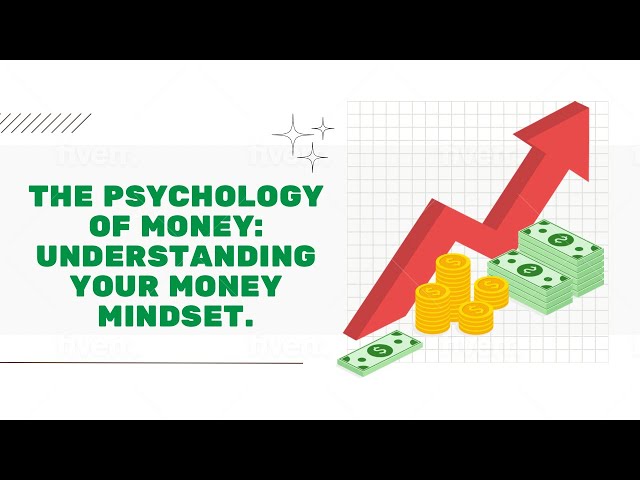The Psychology Of Spending: Understanding Your Money Mindset

Imagine if you could unlock the secret to why you spend money the way you do. What if understanding your own money mindset could help you make smarter financial decisions and improve your overall well-being? In this article, we will explore the fascinating world of the psychology of spending, discovering how our thoughts, emotions, and beliefs shape our relationship with money. By delving into the various money mindsets, we will uncover valuable insights that can empower you to take control of your finances and lead a more fulfilling life. Get ready to embark on a journey of self-discovery that will transform the way you think about money.
Understanding the emotional aspects of money
Money can hold a significant emotional weight in our lives. It is not just a means of transaction but often becomes intertwined with our sense of security, identity, and well-being. Understanding the emotional aspects of money is crucial in developing a healthy relationship with it. We all have different emotional responses to money, and it’s essential to recognize and acknowledge these feelings. Some individuals may feel anxious and stressed about managing their finances, while others may experience a sense of freedom and accomplishment when they have enough money. By understanding our emotional connection to money, we can gain insight into the deeper motivations behind our spending habits.
Exploring the concept of money as a form of control
For many individuals, money serves as a way to exert control over various aspects of life. It provides a sense of power and influence over our choices and experiences. When we have money, we have more options and opportunities available to us. However, the concept of control can become problematic when it leads to excessive spending or an obsession with accumulating wealth. Using money as a form of control can be a way to compensate for other areas of life where control may feel lacking. By examining this aspect of our money mindset, we can work towards finding healthier ways to exert control and find balance in our financial decisions.

The influence of childhood experiences on money mindset
Many of our attitudes and behaviors towards money are shaped by our childhood experiences. Our parents or guardians play a significant role in our early perceptions of money and its value. Financial struggles or abundance during childhood can leave a lasting impact on our mindset as adults. For example, growing up in an environment where money was scarce may lead to a fear of scarcity in adulthood, causing individuals to develop hoarding tendencies or difficulty spending money on themselves. Alternatively, growing up with financial privilege may result in a sense of entitlement or the belief that money can solve all problems. Exploring and understanding these childhood influences can help us develop a healthier and more balanced money mindset.
The role of social comparison in spending behaviors
Social comparison can significantly influence our spending behaviors. In today’s society, we are constantly bombarded with images of others’ success and material possessions through social media and advertising. This can create a constant pressure to keep up with others and maintain a certain standard of living. It’s essential to recognize that comparing ourselves to others financially is often an unfair and inaccurate measure of our own worth. By shifting our focus from external validation to personal satisfaction and financial goals, we can resist the urge to overspend and make more mindful financial decisions.

The impact of advertising and marketing tactics
Advertising and marketing tactics are designed to influence our spending behaviors. Companies invest vast resources into creating persuasive messages that tap into our emotions and desires, convincing us that we need their products or services to be happier or more fulfilled. Understanding the tactics used in advertising can help us become more aware and critical consumers. By questioning the messages we encounter daily, we can resist impulse buying and make more intentional purchasing decisions aligned with our true needs and values.
The connection between self-worth and spending
For some individuals, spending money becomes a way to validate their self-worth. The act of buying new things and indulging in luxurious experiences can temporarily boost their confidence and sense of value. However, this connection between spending and self-worth is fragile and can lead to a dangerous cycle of excessive consumption and financial instability. It is essential to recognize that our worth as individuals does not depend on our possessions or how much money we have. Developing a healthy self-esteem that is independent of material possessions is key to avoiding the pitfalls of trying to buy our way to happiness.

The psychology behind impulsive buying
Impulsive buying is often driven by emotional triggers rather than rational decision-making. It is the result of a temporary desire or a need for instant gratification. Impulsive buying can provide a momentary escape or a way to cope with negative emotions. Understanding the psychology behind impulsive buying involves recognizing the emotional states that precede these behaviors, such as boredom, stress, or loneliness. By identifying these triggers, we can find healthier alternatives to cope with our emotions and avoid the negative consequences of impulsive spending.
The role of emotions in financial decision-making
Emotions play a significant role in our financial decision-making processes. We often make choices based on how we feel in the present moment rather than considering long-term consequences. Emotions such as fear, greed, or excitement can cloud our judgment and lead to impulsive or irrational financial decisions. Becoming aware of our emotional state before making financial choices and practicing mindfulness can help us make more rational and informed decisions. By separating emotions from our financial actions, we can avoid making costly mistakes and prioritize our long-term financial well-being.

The link between financial stress and mental health
Financial stress can have a profound impact on our mental health. The constant worry and anxiety about money can lead to increased stress levels, depression, and even physical health problems. It can strain relationships and negatively affect our overall quality of life. Developing healthy coping mechanisms and seeking support when facing financial difficulties is essential for maintaining our mental well-being. Seeking professional help from financial advisors or therapists can provide valuable guidance and support during challenging times.
Developing a healthy money mindset
Developing a healthy money mindset involves cultivating a positive and balanced relationship with money. It requires becoming aware of our emotions, examining our beliefs and attitudes towards money, and making intentional choices aligned with our values and financial goals. Steps towards a healthy money mindset may include creating a budget, practicing mindful spending, setting realistic goals, and seeking education on personal finance. Developing a healthy money mindset is a lifelong journey that requires self-reflection, self-compassion, and a commitment to align our financial decisions with our overall well-being.




Leave a Reply